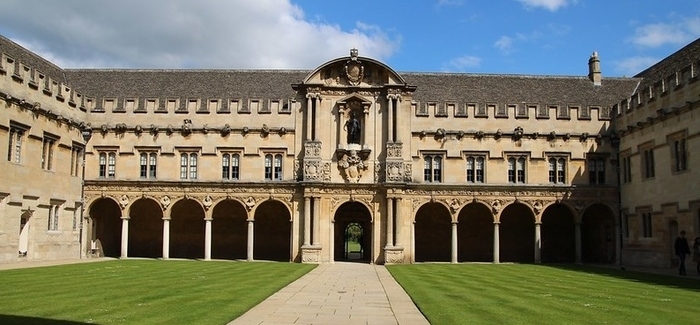Want to study in the UK? Find out whether you need to apply for a UK student visa, and how the application process works.
UK visa requirements and general immigration criteria are managed by UK Visas and Immigration, which has an easy-to-navigate site to help you determine whether you need a UK student visa. While Swiss nationals and those from the EU/EEA states do not currently need a visa to study in the UK, all other international students are likely to need one.
The result of the UK’s referendum on membership in the European Union (‘Brexit’) has led to some uncertainty over visa regulations, but the UK government has stated that there will be no change to the rights and status of EU citizens until 2021.
Types of UK student visa
If you’re studying a short course and are over 18 years old, you may be eligible for the short-term study visa. This is valid up to six months for most short courses and can be extended for a stay of up to 11 months for English language courses.
If you’re studying a longer course, you’ll need to make sure your chosen institution holds a Tier 4 Sponsor License. You can either apply for a Tier 4 (Child) student visa (if you’re aged 4-17 and want to study at an independent school in the UK) or a Tier 4 (General) student visa for those aged 16 and over.
UK student visa requirements
Your course provider may be willing to help you to apply for a UK student visa once you have been offered a place on a course; ask to find out if this is the case. You can apply for the visa up to three months in advance of the start date of your course. Check the average visa processing times for your country, and be sure to allow plenty of time.
UK student visas are awarded on a points-based system. In order to meet all the UK student visa requirements, you’ll need to provide:
- Details of your passport
- A recent photograph
- An unconditional offer of a place on a course offered by a licensed Tier 4 Sponsor, evidenced by a 'Confirmation of Acceptance for Studies’ (CAS) form from your course provider (worth 30 points)
- Proof of adequate English language skills, demonstrated by passing one of the secure English language tests (SELT). You will not need to provide this if you’re from an English-speaking country such as the United States or have completed a qualification equivalent to a UK degree in an English-speaking country.
- Proof you have financial support throughout your stay in the UK (worth 10 points)
- If you’re a non-EU/EEA/Swiss student studying a sensitive subject, you may also need an ATAS certificate
Proof of financial support can take the form of bank statements or a letter from your financial sponsor, showing you can cover your tuition fees, accommodation and living costs. You must prove that you have £1,015 (~US$1,300) per month for living costs if studying in the UK outside of London, and £1,265 (~US$1,600) a month for living costs if studying in London.
You may also be required to produce documents showing your academic qualifications, and to attend an interview or biometric test, which includes a digital scan of your fingerprints. Depending on your country of origin, you may also be required to have certain medical vaccinations or undertake a tuberculosis test.
If you’re 16 or 17 years old and applying for the Tier 4 (General) student visa, you must have written consent from your parents/guardians that you can live and travel independently.
You must apply online for the Tier 4 (General) Student visa, ensuring you’ve read the full guidance here. You can apply up to three months before the start of your course.
UK student visa fees
The current fee for the Tier 4 (General) student visa is £348 (~US$440), with an additional £348 fee per person for any dependents. You’ll also need to pay a healthcare surcharge of £150 per year (~US$190) in order to access the National Health Service (NHS) during your stay (this will rise to £300 (~US$380) from late 2018).
The Short Term Study Visa costs £97 (~US$120) for the six month option and £186 (~US$240) for the 11 month visa.
Streamlined visa processes for master’s students at 27 universities
You can now apply for streamlined visa processing to study a master’s degree at one of the 27 eligible universities (listed here), as part of a new Tier 4 Pilot scheme. Your course will need to be 13 months or less and you can apply from inside or outside the UK. The pilot scheme allows you to stay longer after the end of your course (you can stay for six months after you’ve finished your studies) and also means that you won’t need to submit documents showing your academic results or proof of funds. However, you will still need to have these documents to hand in case they are needed, and will still need to follow all the other immigration guidelines.
Using your UK student visa
When you enter the UK, a UK Border Agency officer will put a stamp on your passport that states the duration of your stay in the UK. For example, if your course is 12 months or more, you can stay for the full duration of the course plus an additional four months. You cannot extend your stay beyond this period.
Before you arrive, you must make sure you are fully immunized, remembering to pack your immunization record in your hand luggage in case you are asked to show the Border Agency officer at your UK port of entry. You should also carry the documents relating to your studies (including your Confirmation of Acceptance for Studies or CAS number), your proof of finances and your proof of accommodation.
Depending on where you’re from, you may also be required to register with the police within seven days of arrival in the UK.
Working while studying in the UK
All EU, EEA and Swiss students can work while studying in the UK. Students of publicly funded higher education institutions on Tier 4 student visas can work for up to 20 hours per week during term time and full-time during Christmas and Easter breaks (unless you are aged 16 or 17, in which case the maximum is 10 hours per week during term time).
This article was originally published in January 2014. It was last updated in August 2018.
Want more content like this? Register for free site membership to get regular updates and your own personal content feed.














